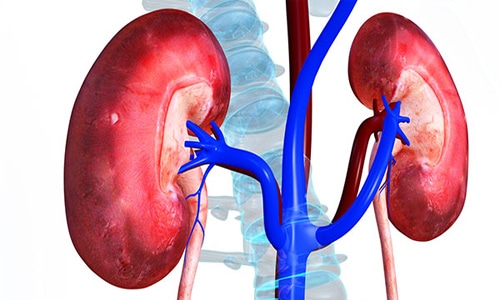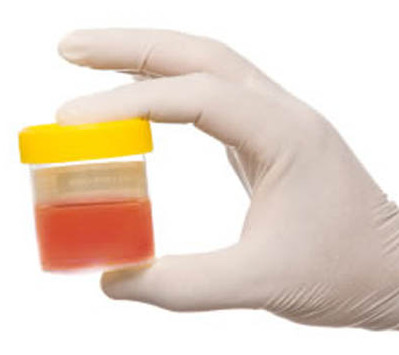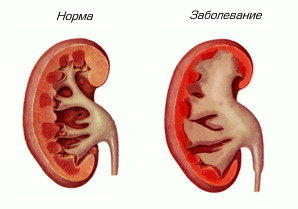kidney disease
When they do not work properly, a person develops symptoms of kidney disease. Their intensity and vastness depends on different lesions. Some diseases are asymptomatic or have mild symptoms, while others have severe symptoms that are difficult to tolerate. Sick kidneys in humans require timely therapy, because if left untreated, the pathology becomes chronic and the patient is threatened with dangerous consequences.
The main causes and types of diseases
Chronic and acute renal pathologies occur for various reasons, which are acquired or congenital. Acquired causes of organ disease are:
- trauma, as a result of which the integrity of the organs was damaged;
- wrong metabolic process;
- excess of the prescribed level of toxins in the blood;
- an infectious disease caused by bacteria that have entered the kidneys from the bladder;
- autoimmune diseases in which the immune system weakens and inflammation occurs.
Each of the above causes can affect the body of a woman, man and child. It is important to know the signs of the disease and notice them in time in order to take timely medicinal measures.
Classification
Kidney pathologies are of two categories:
- The first category includes diseases that affect two kidneys at once. In this case, the functions of the organ significantly deteriorate, which affects the work of the whole organism. Nephritis and nephrosclerosis are bilateral pathologies of the kidneys.
- The second category includes diseases that change the structure or function of only one organ. These include tumors, tuberculous kidney disease, and stone formation.
Congenital and hereditary diseases
 Aplasia is a congenital malformation of the kidney.
Aplasia is a congenital malformation of the kidney.
Kidney problems are often associated with anomalies that are congenital or hereditary. This kind of disease is observed in a quarter of patients with chronic kidney pathologies. Hereditary and congenital diseases are classified as follows:
- Anatomical pathologies of the kidneys, which in turn are divided into quantitative pathologies and deviations in the shape of the organs.
- With histological dysembryogenesis of the organ, the formation of cystic formation or other abnormalities of the kidneys is possible already in the process of intrauterine development.
- The presence of hereditary nephritis.
- Tubulopathy of primary, secondary or dysmetabolic type.
- Uropathy or nephropathy develops when chromosomal or monogenic syndromes are present in the structure.
- In children, Wilms tumor is often observed, which occurs even during fetal development.
Symptoms of kidney disease
 Lower back pain can be a symptom of kidney disease.
Lower back pain can be a symptom of kidney disease. At first, the symptoms of kidney disease may be absent and the person does not even suspect the presence of pathology in the organ. As it progresses, the first common signs of kidney disease appear:
- Pain in the kidneys that radiates to the lumbar region. Given the disease and its degree, pain can have a different character and intensity. Sometimes they radiate to the pubic region, femoral, abdominal cavity. Such pains often indicate seizures.
- Impurities of blood in urine are characteristic for the formation of stones, chronic pyelonephritis, inflammation, tumors. Urine may acquire a slightly pinkish color, and sometimes becomes scarlet.
- The appearance of puffiness, which at first worries only in the morning and swelling appears only under the eyes. Over time, the patient's lower limbs and hands swell.
- Impaired excretion of urine, in which a person experiences pain. Common signs of kidney disease is anuria or oliguria, in the first case, there is no urine, in the second, its daily amount is significantly reduced.
- With kidney disease, the patient complains of poor health, which is associated with impaired organ function. It becomes difficult for the kidneys to remove toxic substances and toxins from the body. This affects the state of a person, he experiences constant fatigue, efficiency decreases, pain in the head occurs and there is no appetite. Over time, inflammatory diseases of the kidneys and intoxication of the body occur.
Prolonged renal disease often causes the patient to develop arterial hypotension, the skin turns pale, and their structure changes.
Symptoms depending on the disorders
Nephrolithiasis
 The sudden onset of cold sweat is a shock sign in nephrolithiasis.
The sudden onset of cold sweat is a shock sign in nephrolithiasis. General signs of kidney disease can be supplemented, depending on the pathology that affected the organ. So, with nephrolithiasis, stones are formed in the organ, in which there are such additional symptoms:
- sharp, unbearable pain;
- nausea;
- vomit;
- shock signs - a person is thrown into a cold sweat;
- pale skin;
- the heart beat quickens.
With a mild degree of flow, a person experiences only mild pain. It should be noted that nephrolithiasis affects only the kidneys, stones do not form in other organs of the genitourinary system. When stones enter the ureter and bladder, the mucous membrane is injured, which leads to hematuria.
Glomerulonephritis
 Headaches are characteristic of glomerulonephritis.
Headaches are characteristic of glomerulonephritis. A disease in which the tubules and glomeruli of the organ become inflamed is called glomerulonephritis. The disease can provoke insufficiency and disability. Pathology is manifested by such symptoms:
- manifestation of headaches;
- fatigue, apathy;
- swelling on the face;
- decrease in the amount of urine;
- sleep disturbance;
- irritability;
- depressive state.
Pyelonephritis
Pyelonephritis associated with an infectious lesion of the organ is the cause of inflammation. In pathology, the following symptoms appear:
- increase in temperature up to 39 °C;
- significant sweating;
- intoxication;
- pain in the lower back, lower abdomen and groin;
- turbidity of urine.
Given the development of pathology, over time, a person complains of an attack of pain that worries at night. Pathology is characterized by the appearance of edema on the face. If a permanent form of pathology develops, then the symptoms are weaker. Sometimes there are no signs of pyelonephritis, a person only feels constant fatigue and sweats at night.
Polycystic kidney disease
 Blood in the urine is formed in a patient with polycystic disease.
Blood in the urine is formed in a patient with polycystic disease. With an organ disease of this type, cysts form in tissues that contain fluid inside. At first, polycystic disease is not marked by any signs and is detected by chance during the examination. As the cysts grow, the following signs of pathology appear:
- aching pain in the lower back and abdominal cavity;
- intermittent blood in urine;
- weight loss, lack of appetite;
- clarification of urine and an increase in its quantity;
- diarrhea or constipation;
- skin itching.
If polycystic disease is not treated, then over time, kidney failure occurs.
Nephroptosis
Nephroptosis is not a congenital pathology; specific causes are needed for the development of the disease. There are such risk factors for the development of nephroptosis:
- a sharp increase or decrease in weight;
- external trauma to the organ;
- pregnancy and childbirth;
- intense physical activity.
The disease is characterized by aching and pulling pains in the lumbar region, which disappear when lying down. Over time, the pain becomes stronger and does not go away with a change in body position. Over time, pain in the head increases, the person feels sick, vomiting is observed. If the deviation is not detected in time, then an operation has to be performed.
 Hydronephrosis affects the pelvis of the organ.
Hydronephrosis affects the pelvis of the organ. A disorder in which urine is not normally excreted and stretches the calyces and pelvis is called hydronephrosis. In most cases, it occurs in women under 40 years old. The disease causes pain in the lumbar region, high fever, nausea and vomiting. If a deviation is not detected in time, then hydronephrosis can lead to rupture of the pelvis, as a result of which urine enters the abdominal region.
Tumor formation
Both benign and malignant tumors can occur in the kidneys. The deviation is characterized by the growth of the tissue of the organ, which consists of changed cells. Tumors cause the following symptoms:
- the general state of health is disturbed, weakness and fatigue are felt;
- dry mouth, drying of mucous membranes;
- pain in the back, abdomen;
- weight loss, loss of appetite;
Benign tumors are less common. With kidney diseases of a malignant nature, more vivid symptoms are felt. In the last stages, most often the patient is concerned about metastases, which are given to neighboring internal organs. As a result of this, the work of not only the kidneys, but also of all organs is disrupted.




